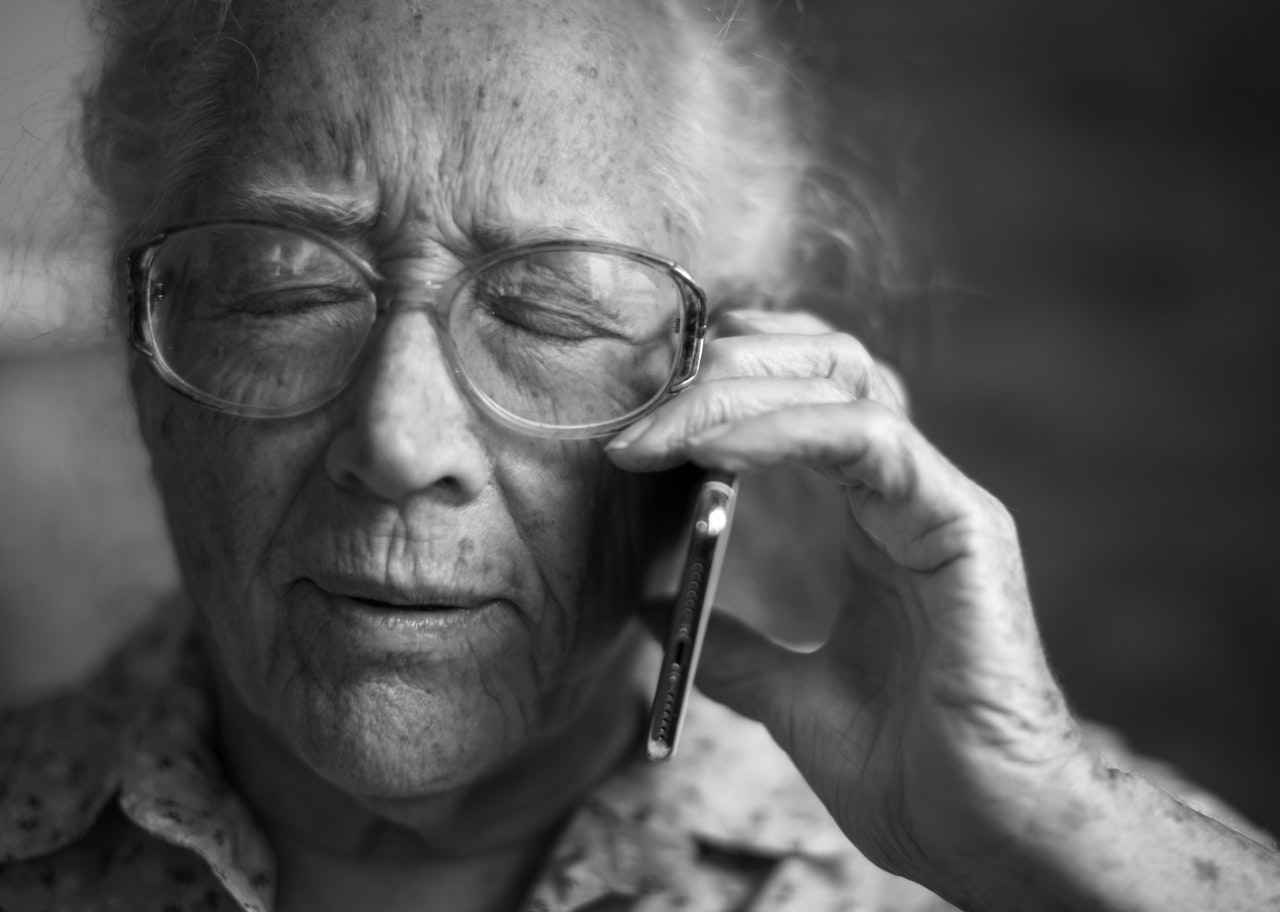Warning: Undefined array key 1 in /var/www/wp-content/plugins/monarch/monarch.php on line 4359
When we are young, raising families and chasing careers, we can’t wait for midlife to arrive. The kids are leaving home. Careers are peaking or maybe even coming to a conclusion. Grandbabies might be in the mix. You find yourself daydreaming about the things you’ll do and all the places you’ll go once you have more time. This season of life is exciting in so many ways.
What we don’t expect – and what no one tells us – is that it can also be a lonely time. The friends and family we assumed would be available to play with us may have their own time demands. We may find we were so busy building a life we forgot to plan for a life.
You and your spouse may have grown apart or may have different ideas about what to do with this newfound time. You may find yourself without a partner. In short, you may find yourself feeling lonely.
You’re Not Alone
Loneliness has recently been tagged an “epidemic”, especially in the United States. It’s kind of ironic. With all the social media and video chat capabilities, we are more connected than ever before yet people are reporting feelings of loneliness in record numbers.
A nationwide survey by Cigna found that nearly half of the 20,000 participants surveyed reported feelings of loneliness. About 40% reported a lack of meaningful relationships and companionship in their lives and that they are “isolated from others.” In fact, only about half of those surveyed reported having meaningful social interactions on a daily basis.1
Data has proven the increasing rate of loneliness
While younger adults reported the highest rates of loneliness in the Cigna study, mature adults also reported significant levels of loneliness. In fact, an AARP survey found that about 35% of older adults were identified as lonely. They were also less likely to be involved in meaningful social activities such as community involvement or engaging in a hobby.2
You might be thinking that these were folks who didn’t have spouses or significant others. In fact, while the rate of loneliness for married respondents was lower than for singles, 29% of married respondents still reported feeling lonely.3 With mature adults being the largest growing segment of the population, that’s a lot of lonely folks.
Why This Is Important
Social contact is like nourishment for our bodies and our minds. When we don’t have it, the effects of physical and emotional well-being can be significant. Loneliness has been found to be a significant contributor to the functional decline. 3 Social isolation can increase feelings of depression, increase blood pressure and affect sleep. Isolation can make it more difficult to deal with stress. 4
So with all this loneliness, what the heck is going on?
Meet Darlene and Tim, two empty-nesters who recently sent their last child off to college. Darlene is a stay-at-home mom whose focus was raising her kids. She dreams of traveling and spending time with her husband. After a successful career, Tim retired a few months ago with an eye on playing lots of golf and sleeping late.
They’re not doing much together and Darlene is starting to worry that their marriage is in trouble. Tim wonders why Darlene suddenly wants to change their routine. For years, they’ve each looked forward to this time in their lives.
But, now that it’s here, they each find themselves struggling – not with each other, but with loneliness. But why? It wasn’t supposed to be this way! (***names are fictitious)
Changing Roles
As we get older, our roles change. We go from being parents of children to parents of grown children who have their own lives. While you are still vitally important to your family, your role is no longer that of primary caretaker, nurture or provider. You become more of a supporting influence.
You no longer have the day-to-day focus on the kids and their needs. How do you fill your days? How do you define yourself now? If you haven’t planned for this transition, it can be a very lonely time.
Shifting Social Connections
With kids and jobs and such, you have a built-in social network. You probably interacted quite a bit with other parents. You probably established some friendships and rapport with a number of coworkers. You might even socialize in other settings now and then.
Once the school or sports or the job come to an end, the things that link you together come to an end. Will you stay friends with these folks? Maybe. Maybe not. A lot depends on what other things you have in common and whether you’ve built a relationship on something besides a common link.
One of the most difficult things people experience is finding that they don’t seem to have many social connections as they transition into midlife.
Technology
Gone are the days when you had to go somewhere to do things like banking, get groceries or get stamps. You can order just about anything online. Even connecting with friends and family is now a click or tap away. You can chat without leaving the comfort of your home.
Super convenient? Yes. Nurturing to our need for social connections? Not so much. Texting or email or even Skyping does not have the same social impact as a face-to-face exchange. All this electronic interaction can sometimes leave us feeling disconnected and isolated.
Illness and Loss
As we age, it’s inevitable that we will experience illness. Sometimes, illness can sideline us and take us out of our day-to-day routine. It can be quite isolating and feel like the world is going on without us.
This is also the time when we may really start to lose friends and loved ones. These losses can be further isolating when the ones lost have been a primary source of social support and social contact. Losing a spouse can be especially isolating. After all, this is probably the person you’d planned to sail into the sunset with.
Unrealistic Expectations
Take another look at Darlene and Tim. They’re both at a point where they can enjoy time together, right? Well, there’s just one problem…they each have completely different ideas about how to spend this time. No wonder they’re feeling lonely.
Even if you’re not in a relationship, you may have created an idea of how you’d be spending this time of your life. When you made that plan, it probably didn’t include a table for one.
So what can you do to avoid or minimize loneliness? Be proactive! Create a meaningful and reliable social network. That sounds really hard, right? It’s about creating some new habits and new ways of connecting to your world and those in it.
Make Plans…And Keep Them
Think about friends or family that you would like to spend some time with. Invite them over. Plan an outing. Keep it simple. A coffee date. A walk in the park. A movie. The important thing is to reach out. We all get so caught up in everyday business that we can forget how much time has passed since we saw someone we care about. Make the call.
Make the Effort to Keep In Touch
Missing someone? Reach out to them. Make a phone call. Send an email or text. If you’re a little more tech-savvy, try Skype or Facetime! If you’re a bit tech-avoidant, write a letter. There is still something powerful and touching in a handwritten letter. You don’t need a reason to reach out. Sometimes reconnection can start with a simple hello, how are you?
Get Out There
Instead of doing everything online, get out and about your town. Run errands. Walk your dog. Flash a smile. Make it a point to say hello to people. Make small talk. Simple positive exchanges are powerfully enriching.
Get Involved
Do you have a cause you’re passionate about? With more time available, you might want to spend some of that time pursuing what you’re passionate about.
You can also look for community events that you might enjoy – bingo, dance lessons, walking groups, book clubs. The possibilities are endless. You’ll be getting out into the world and you’ll be enlarging your social circle.
Indulge A Hobby
A hobby is a great way to engage with others. Join an interest group. Attend hobby-related activities.
You’ll be getting out and interacting with people who have similar interests. That common interest can make striking up a conversation easier.
Have A Plan to Overcome Loneliness
Especially in the case of couples, it’s important that as you approach this time, you have the talk. Talk about your wishes and listen to your partner’s desires. You can’t read each other’s minds. If you don’t communicate your dreams, your partner may assume everything is OK as is. If you want to travel, make travel plans together. If you don’t love golf, that’s ok.
The important thing is to have some understanding of what your partner’s expectations and desires are. Listen for ways that you can strike a balance between the two of you. Strive for a balance between couple time and individual time.
Expectations
This is where Darlene and Tim really stumbled. Darlene had a clear picture in her head of what her retirement days would look like. She and Tim would travel the world. Tim, on the other hand, saw retirement as a lot of golf and relaxing. Nothing wrong with those expectations right? Nothing except that Darlene didn’t tell Tim what she wanted.
Tim didn’t tell Darlene what he wanted to do. And they both felt lonely.
So how did Darlene and Tim resolve this impasse? After a series of arguments and a lot of hurt feelings, they opted for some marriage counseling. They clearly loved each other but could not seem to find a middle ground. Darlene and Tim learned how to clearly talk about their needs and thoughts about spending time together.
The importance of spending time together
Darlene discovered that Tim had no idea how important it was for her to spend time with him and that she really wanted to travel. Tim learned that Darlene wasn’t asking him to give up his desires. She was asking for some of his time.
She learned that Tim had a need to spend time indulging some of the activities he was unable to do because of his career demands. She also learned he was more than willing to travel with her and enjoy time together.
They identified some things they could do together as well as things they wanted to do on their own. They also worked on ways of connecting with friends and making sure they had a sound social network. On the last check, they were planning a getaway but not just any getaway – a golf getaway with old friends they had reconnected with. Perfect balance for them.
Loneliness does not have to be part of your journey.
The key is to stay active, stay connected and make sure you are sharing your wants and needs with your loved ones. Look for opportunities to engage with others.
Here’s a challenge for you: each day, smile (even if you don’t really want to) and look for an opportunity to connect with someone. The more you do something, the easier it becomes. And you can never have too many people in your life who care about you. Reach out and let them know you’re there.
1 MultiVu – PR Newswire. (2018, May 1). New Cigna Study Reveals Loneliness at Epidemic Levels in America. Retrieved from https://www.multivu.com/players/English/8294451-cigna-us-loneliness-survey/ G. Oscar Anderson. (2010, September).
2Loneliness Among Older Adults: A National Survey of Adults 45+. Retrieved from https://www.aarp.org/research/topics/life/info-2014/loneliness_2010.html Perissinotto, C. M., Cenzer, I. S., & Covinsky, K. E. (2012).
3Loneliness in Older Persons: A predictor of functional decline and death. Archives of Internal Medicine, 172(14), 1078–1083.
4The Dangers of Loneliness. (2003, July 1). Retrieved from https://www.psychologytoday.com/us/articles/200307/the-dangers-loneliness
Dr. Dawn Ferrara has over twenty years of clinical experience in the mental health field. She is a Licensed Professional Counselor and Licensed Marriage & Family Therapist as well as a Certified Health Coach. Dr. Ferrara is passionate about helping her clients find solutions that work and believes that every person has the power and ability to be successful. When not working, she can usually be found in the gym or spending time with her husband and their silly Black Lab, Riley, enjoying the sights and sounds of South Louisiana.










